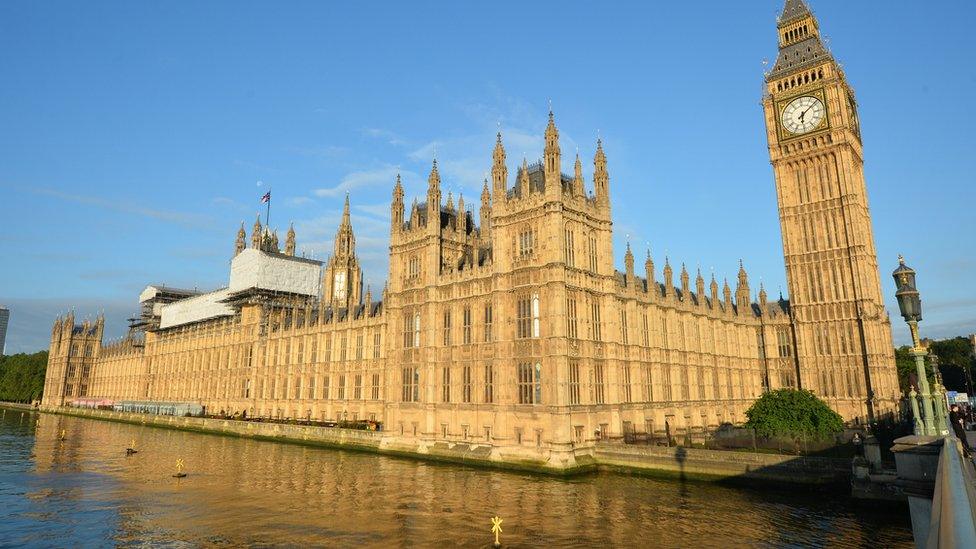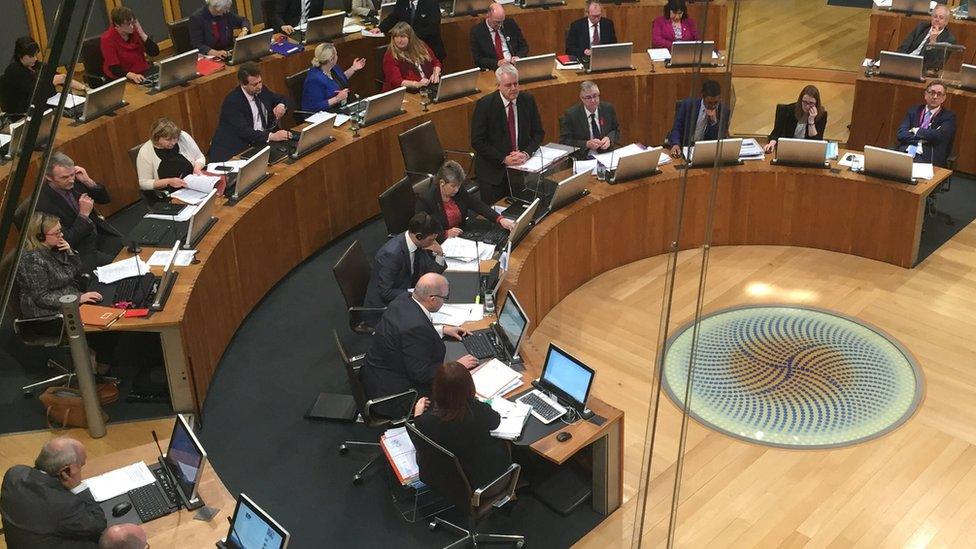The issues behind the Wales Bill on further devolution
- Published

The Wales Bill establishes a new system of powers reserved to Westminster
In the latest step on the Wales Bill's long and arduous journey, AMs have given their consent in a vote in the assembly on Tuesday. But what exactly have members supported?
The team at the Wales Governance Centre at Cardiff University explores the matters behind the legislation.

Reserved Powers
The Wales Bill re-defines the assembly's law-making powers on the reserved powers model - a similar system to that in Scotland and Northern Ireland - empowering the assembly to make laws on any matter except those specifically reserved to the UK Parliament.
The Wales Bill now contains fewer reservations than the bill in draft form or as first introduced to Parliament.
However, the reduction in the number of reserved matters is partly explained by the fact some individual reservations have now been grouped together, resulting in a slightly shorter list of 193 reserved matters.
Some of the areas where the UK government conceded, include powers over heat and cooling networks, teachers' pay and conditions, parental discipline, services and facilities relating to adoption, and devolution of a package of measures on water and sewerage.
But there is no clear principle underpinning the scope of the powers devolved to the assembly and those reserved to the UK Parliament.

The workability of the reserved powers model is very dependent on the list of reservations.
Assembly legislation will be outside competence if it "relates to" a reserved matter.
Therefore, with such a long list of reservations, the more likely a bill will relate to a reserved matter.
And if things were not complicated enough, in addition to the 193 reservations there are also some exceptions to reservations, and even exceptions to those exceptions.
One of the major challenges for the UK government was trying to create a reserved powers model while maintaining the single England and Wales legal jurisdiction.
Some compromises were made to remove the necessity tests to allow Welsh legislation to create new offences and penalties that could be enforced by the courts, and to recognise there is a body of Welsh law.
This did not go as far as establishing a distinct jurisdiction for Wales, which the Welsh Government called for.
It is also expected that a permanent committee to look at justice in Wales would be established.

Welsh elections made in Wales

The Wales Bill devolves substantial powers over its own elections to the National Assembly. The bill gives the assembly control over:
the law on eligibility to vote - thus potentially introducing votes for 16 and 17-year-olds
the ability to alter the electoral districts - so assembly constituencies might become different from Westminster ones
the whole electoral system - potentially allowing Wales to move from the current two-ballot Additional Member System for assembly elections to something very different
But the bill requires a two-thirds assembly majority for any changes to electoral law as a safeguard against parties manipulating the electoral system in their own interests.
And different parties have different interests: in previous devolved elections Labour would have done better from a less proportional system, the other parties would generally gain from a more proportional system.
To change the law, a fairly broad coalition of them would have to agree.
So the Wales Bill transfers substantial electoral powers - but will those powers ever be used?

Welsh rates of income tax

The Wales Bill removes the need for a referendum to be held before a £2bn share of Welsh income taxes is devolved to Wales.
This created a potential stumbling block for the bill - AMs would require assurances that tax devolution would negatively impact the Welsh budget.
With hundreds of millions of pounds at stake, this prompted negotiations over Wales' future fiscal framework, with an agreement announced just before Christmas.
Given the terms of the deal, the Welsh budget will in all likelihood lose out as a result of tax devolution.
However, this will probably be more than outweighed by the first major modification of the Barnett formula since its introduction.
- Published16 January 2017

- Published11 January 2017

- Published11 January 2017
- Published8 January 2017

- Published10 January 2017
